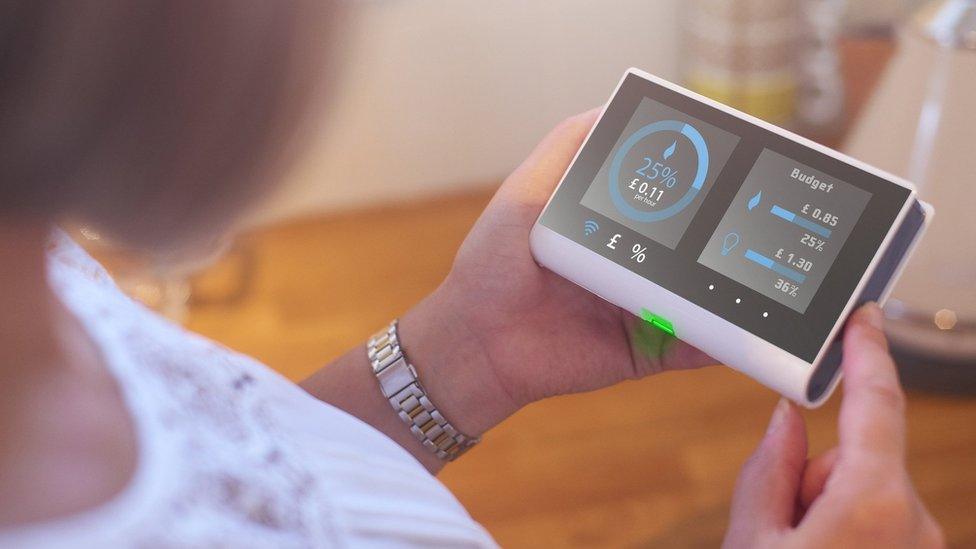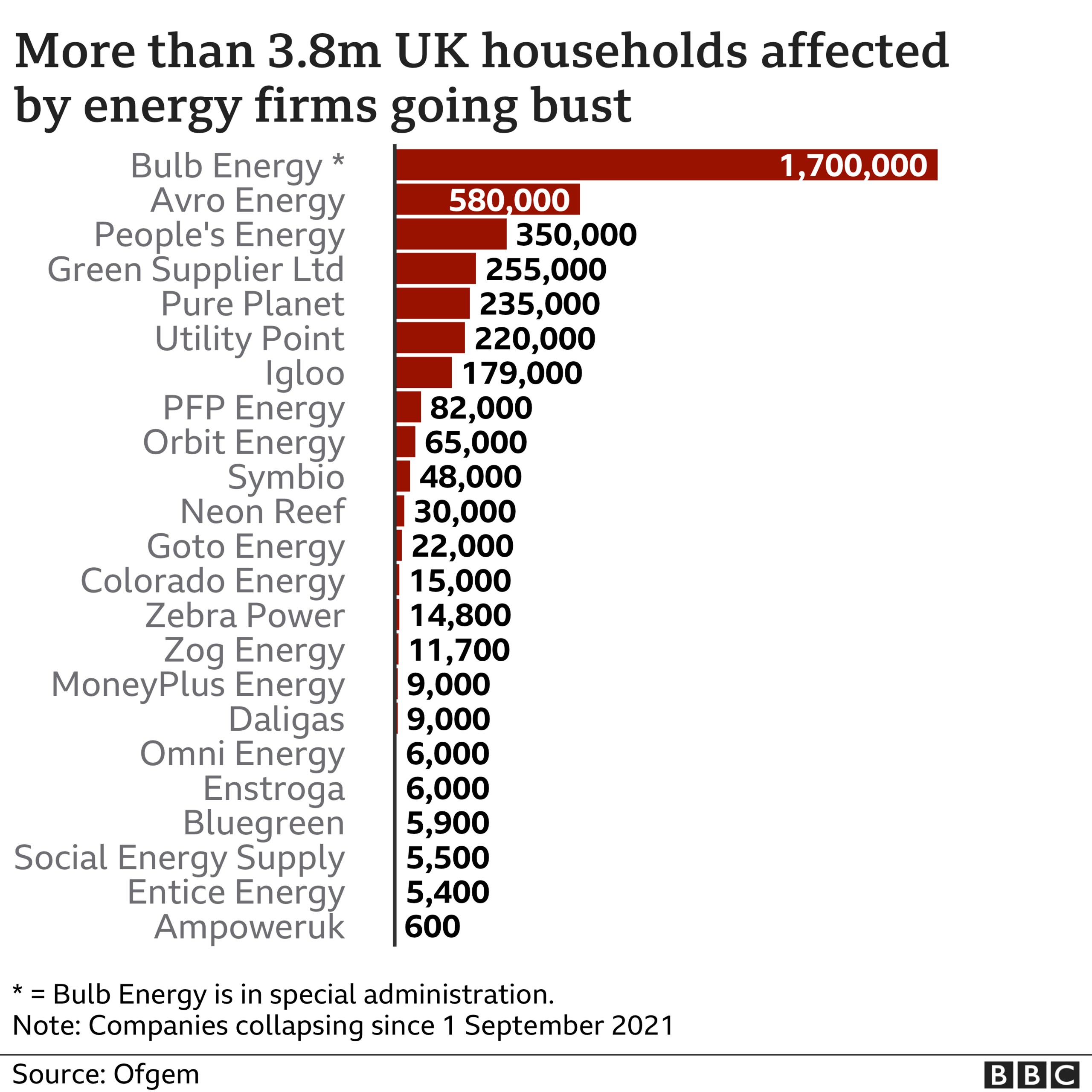Zog Energy becomes latest firm to collapse in gas price crisis
- Published

Another energy supplier has collapsed amid an ongoing surge in gas prices, UK regulator Ofgem has said.
Zog Energy, which has about 11,700 domestic energy customers, ceased trading on Wednesday.
It marks the latest company to go bust under higher wholesale gas prices, which have made it difficult for companies to keep price promises.
Ofgem will appoint a new supplier for the firm's customers.
In the meantime, customers should wait until their new supplier has been appointed before looking to switch elsewhere, it said.
The energy watchdog added that taking a meter reading will also help smooth the process when Zog Energy's customers are contacted by their new supplier.
They join nearly four million other households, which have seen their supplier fail since the start of the pandemic.
Neil Lawrence, director of Retail at Ofgem, said customers did not need to worry.
"Under our safety net we'll make sure your energy supplies continue... You can rely on your energy supply as normal."
In a statement on its website, external, Zog Energy emphasised that customers' supplies are "secure" and funds that consumers have paid into their accounts will be protected if they are in credit.

What happens if your energy supplier goes bust?

Customers will still continue to receive gas or electricity even if the energy supplier goes bust. Ofgem will move your account to a new supplier, but it may take a few weeks. Your new supplier should then contact you to explain what is happening with your account
While you wait to hear from your new supplier: check your current balance and - if possible - download any bills; take a photo of your meter reading
If you pay by direct debit, there is no need to cancel it straight away, Citizens Advice says. Wait until your new account is set up before you cancel it
If you are in credit, your money is protected and you'll be paid back. If you were in debt to the old supplier, you'll still have to pay the money back to your new supplier instead

The collapse of Zog comes after several other smaller suppliers, such as Orbit and Entice, announced they would cease trading last week.
The biggest casualty of the gas price spike so far is Bulb Energy. The UK's seventh largest supplier was handed about £1,000 per customer from the UK government last month to make sure it could continue supplying energy.
The firm, which has about 1.7 million customers, was put into special administration because its size meant the regulator was unable to find another company to take over Bulb's customers. This means Bulb is being run by the government through the regulator Ofgem. That will allow it to keep trading with a £1.7bn loan.
More than 20 energy suppliers have now failed following a spike in wholesale gas prices.

As a result of the energy price cap, which limits what firms can charge their customers, some businesses have been forced to sell energy for less than they bought it for.
Bigger companies tend to buy gas further in advance, which protects them from the impact of a price spike. But smaller firms are less able to do and have come under more pressure.
On Wednesday, energy regulator Ofgem described the rise in prices as "unprecedented".
It said in October that it would review how the price cap on gas and electricity bills is calculated following company failures.
Ofgem can review the price cap - which is the maximum amount per unit that a supplier can charge households on a standard tariff - twice a year.
The most recent review lifted the price cap by 12% to a record £1,277.

Are you struggling to pay your energy bills? Share your experiences by emailing haveyoursay@bbc.co.uk, external.
Please include a contact number if you are willing to speak to a BBC journalist. You can also get in touch in the following ways:
WhatsApp: +44 7756 165803
Tweet: @BBC_HaveYourSay, external
Please read our terms & conditions and privacy policy
If you are reading this page and can't see the form you will need to visit the mobile version of the BBC website to submit your question or comment or you can email us at HaveYourSay@bbc.co.uk, external. Please include your name, age and location with any submission.
Related topics
- Published26 May 2022

- Published25 November 2021
